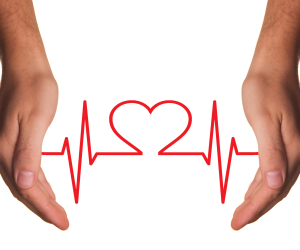
How Trauma Impacts Hormones + How to Use Mind-Management to Treat Hormonal Imbalances
Dr. Caroline Leaf – In this podcast (episode #329) and blog, I talk to leading hormone expert and N.Y. Times best-selling author Dr. Sara Gottfried about hormone balancing and education, how our hormones can impact our mental and physical health, and more!
For a long time, Sara battled with her own health, and found that her hormonal balance was off. Through changing her lifestyle and other interventions, Sara was able to heal herself, but her story is not unique. As she notes, we are failing so many people when it comes to hormonal issues!
Yet there is hope. When it comes to our hormonal balance, there is so much we can do. We can change the way we eat, how we think, our lifestyles, and so on.
Hormones drive what we are interested in; they drive our mood, our metabolism (the biochemical pathways in the body) and so much more. Hormones play a key role in both our mental and physical health.
When it comes to hormonal imbalances and how they can affect our wellbeing, we need to get the root causes, not just treat the symptoms. A holistic approach, like what Sara uses in her own practice, is vital.
Indeed, as Sara points out, it takes time to balance hormones and improve health. There is no “quick fix”. Our hormones are part of a complex feedback system, which means we need to take a step back and see how they all work together as a symphony. Our hormones do not work in isolation!
There are also more gender specific hormonal periods that need to be examined separately. Changes in female hormones like estrogen and progesterone during puberty can increase a young person’s anxiety levels, for example. On the other hand, postpartum can be a preview of perimenopause, which can lead to more mood disturbances and other health issues.
It is important to understand that estrogen is the primary regulator of the female body, including the brain. This is why perimenopause often has an effect on female cognition. After the age of 40, many women experience forgetfulness and other issues as their hormonal levels change. And, if we wait too long to intervene, it may be too late to manage these changes, especially when it comes to our brain and heart health.
Trauma is also a major disruptor of the hormone system, yet there is not enough awareness about this. As Sara notes, we need more information on how trauma impacts the control system of our hormones.
We need to broaden our definition of trauma, which can be any overwhelming experience that can impact our development and health. Trauma is an ongoing experience in the body, which we can see in our ability to self-regulate, our inflammation markers, our hormonal pathways, and more.
Yes, it can take time and hard work to deal with the root causes of a hormonal imbalance, but it is worth it! As Sara notes, living with your hormones out of balance is so much harder than the work it takes to get your hormones back into balance.
To read the original article click here.






